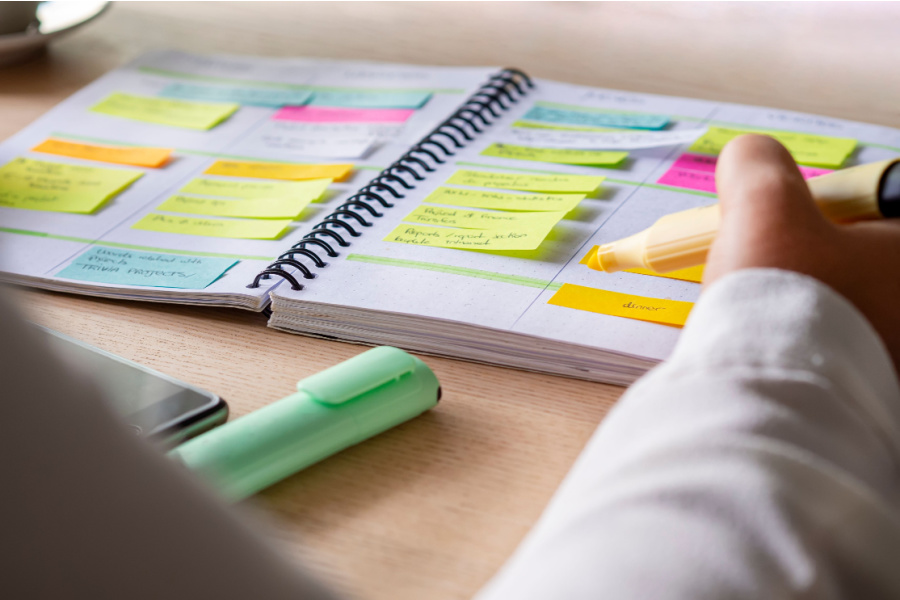
As a Psychology student, you may be looking forward to working in human resources, diving into social work, or becoming a counsellor, therapist, or clinical psychologist. All these careers in Psychology offer great opportunities. However, before you can start your career, you must first go through the four years of college.
Studying Psychology is not exactly a walk in the park, but it’s doable! Let’s explore the most useful and practical tips for studying Psychology.
What Do You Study in Psychology?
Broadly speaking, Psychology is the study of the human mind, its functions, and how it impacts behavior. The approach and subject matters you explore in college is largely dependent on your bachelor’s degree, whether you’re taking a BA or a BS.
The main difference between a BA and BS in Psychology is their approach to Psychology. A Bachelor of Arts in Psychology approaches the study from a humanities and sociological perspective. Meanwhile, a Bachelor of Science in Psychology offers a more scientific approach, focusing on empirical study and research.
Nevertheless, both curricula help refine the skills needed in Psychology:
- Critical thinking
- Analytical skills
- Research skills
- Data interpretation
- Interpersonal and communication skills
As you can imagine, studying Psychology involves a lot of reading, research, analyzing, and writing. To help you manage the expectations and requirements of your course, you need an effective study habit.
10 Study Tips for Psychology Students
Here are effective tips for studying psychology to help you get good grades and minimize stress and all-nighters:

Create a Study Plan
Most college professors hand out syllabus to guide students throughout the semester. Use this to help you stay organized. For every class, plot out key events, such as topics, assignments, papers, quizzes, and exams.
From there, set a timeline for when you need to read up on a topic that will be discussed, when you need to work on assignments and papers, and when you need to start studying for quizzes and exams. This way, you know what you need to do every week and will not be taken by surprise by any deadline.
Another thing to consider when creating a study plan is your schedule. Plot out your free time and set a time for studying for certain classes. Remember to set enough study time for each class – the rule of thumb is to devote two hours for every hour of class.
Block out the period for studying and avoid setting appointments during this time.

Study in Blocks
You may have heard of the Pomodoro technique where you study in 25-minute chunks then take 5-minute breaks. If this works for you, go ahead and implement that whenever you study.
However, for some, especially when studying Psychology, it is more effective to engage in deep work where you focus completely on an important task. A deep work scheduling approach similar to the Pomodoro technique is to work in 90-minute or four-hour periods during which you go on “do not disturb” mode, meaning no distractions at all. Then, you can take 15-minute breaks in between to let your mind breathe.
Studying in blocks of time allows you to engage fully with the materials and maximize your productivity during a fixed time. This helps students avoid procrastination and cramming.

Take Good Notes
A crucial tip for studying Psychology is to actively take down notes, both in class and when studying. While professors typically send out copies of their presentations, it’s usually not enough because you can still pick up important points and details from the discussion in class.
You don’t need to write everything the professor says. However, it may help you to understand and remember concepts better when you take down notes, such as examples and analogies discussed. You may use mind maps and charts to help you visualize discussions, too.
Taking down notes also applies to when you read textbooks and other reading materials. Make sure to highlight key ideas and details, jot down questions or associations, and write summaries in your own words as you read.
These notes can be a useful tool for when you study outside of class or review for exams.

Be Active in Class
Recitation is not the only way to be active during classes. As you start college, you can benefit from seeing class as a forum where you can discuss ideas and ask questions.
Listen and take down notes when your professor provides deeper explanations of Psychology concepts. Ask questions or clarifications about aspects you didn’t quite understand. Perhaps you have a question about the reading material.
Don’t just sit in class waiting for it to be over. Instead, be curious and use the class as an opportunity to better understand Psychology.
Summarize Using Your Own Words
It is said that “If you can’t explain it simply, you don’t understand it enough.” This is a great standard for studying psychological concepts.
Whenever you learn new information or concepts, make sure to explain them to yourself using your own words. This will allow you to synthesize information and ensure that you know the material enough.
Another way to reinforce learning is by applying the concept to your life. Think of a scenario or experience from your life that can be explained or illustrates the concept you’re learning. This not only helps you remember information better but also encourages you to think critically.

Practice Active Recall
When studying Psychology, it’s not enough to remember pieces of information. Most of the time, you need to understand concepts and systems and apply them to real-life scenarios. This is why a popular study tip given to Psychology students is to aim for active recall rather than recognition.
Active recall is a study technique that challenges the mind to retrieve information without any help. This process helps facilitate a deeper understanding of topics and better memory retention so you can actually remember information beyond the exam date.
To study for active recall, you need to prepare questions – either from your notes while you study or during class, practice questions, or questions from previous exams or quizzes. You can write them in a flashcard with the answer at the back. Go through the questions repeatedly. Answering questions can show you which topics you’re still struggling with, so you know what you need to focus on.

Study with a Friend or Group
Group study sessions are not only for outgoing individuals. Study groups are a great way to supplement all the work you’ve done for your classes. Studying with friends gives you an opportunity to test how well you understand concepts by explaining them to others or answering their questions.
Likewise, you can clarify ideas that are still fuzzy to you by asking others to help you understand them. You may find nuggets from your classmates that can help you deepen your understanding. You may also exchange tips and tricks for remembering information.
However, remember that study groups have the potential to be distracting if not managed well. Make sure that you have a clear structure for your group studies and every member comes in prepared.
Read Beyond the Textbook
If you genuinely want to maximize your learning, you need to go beyond the textbooks, presentations, and notes from class. We live in a world where information is accessible at almost any time, so take advantage of that.
Expand your knowledge by reading up on ideas that may have emerged but were not expounded on in your readings. Do additional research on topics you struggle with – other resources may provide simpler explanations or offer context that can help you digest the challenging concept better.
Don’t limit yourself to the materials your professor provides but avoid getting distracted with additional research. Make sure that your additional research adds value to the topic you’re studying.

Take Care of Your Mind and Body
It may seem like this advice is out-of-place, but taking care of your physical and mental health is key to performing well in college. You may be able to cover all the topics in your exam by staying up all night, but you will likely struggle because your mind is not in the best condition – it can’t recall information as well as it could if it’s tired and sleepy.
So, make sure to get sufficient sleep and eat as healthily as possible. Avoid living the stereotype of college students surviving off caffeine and instant noodles!
Apart from that, try to incorporate exercise, hobbies, and time with friends so you can recover from the mental load of being a Psychology student. This way, you can return to your studies with renewed energy and motivation.

Customize Your Study Techniques
As you can see, there are a lot of techniques and advice for studying Psychology. It’s important to keep in mind that you don’t need to follow all of them.
At first, you may need to experiment with different techniques and combinations. If a tip is not working for you, mix it up! Eventually, you’ll identify which methods work best for you and your learning style.
For example, some people may find that a few group study sessions help them, but others find it distracting no matter how organized.
Find the right formula that allows you to maximize your time and resources and helps you achieve the best outcomes.
Let OEd Guide Your Psychology Education
If you’ve chosen to study Psychology, you’re in for a wonderful journey. Choose from the tips for studying Psychology to find the method that best matches your learning style so you can maximize your education and achieve future success.
At OEd, we offer high-quality, flexible online education that empowers students to enhance their knowledge and skills at their own pace and schedule.
To learn more about our programs and educational philosophy, don’t hesitate to get in touch with us.
